Spring 2024 Colloquium
Lectures begin at 3:35pm in 125 Nicholson Hall on the East Bank of the University of Minnesota-Twin Cities campus.
At this time, all events will be in-person unless otherwise stated. Some events may be subject to change. Please check back for updates or contact hstm@umn.edu for more information.
To learn more about MCPS-sponsored lectures, please visit their website.
Earlier Colloquium
ASSS Elaine Auyoung, January 19, 3:35pm

English, GWSS, CCS, Minnesota
Annual Science Studies Symposium
Title: Varieties of Expertise and the Research University
Abstract: Nearly a quarter of the way into the twenty-first century, research universities are contending with
widespread public skepticism toward expertise and rapidly changing advancements in artificial intelligence. This
talk draws on converging perspectives in cognitive psychology and feminist epistemology to identify institutional and epistemic obstacles to valuing knowledge that does not translate into observable output. With an emphasis on the arts and humanities, I trace the inductive processes of perceptual and conceptual learning involved in developing expertise. I will also show how expertise prepares us to perceive, interpret, and experience the world in increasingly discriminating and flexible ways. Besides offering a conceptual vocabulary for specifying the nature and value of perceptual transformation, I hope to show how we can be more intentional about democratizing the college classroom and how longstanding hierarchies of value have prevented us from doing justice to many varieties of expertise.
Natalia Aleksiun, February 2, 3:35pm
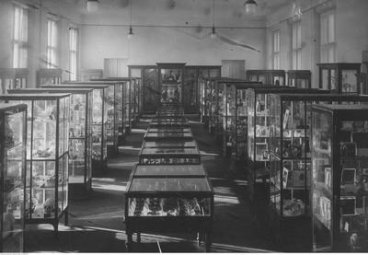
Holocaust Studies, University of Florida, Gainesville
A Charles E. Culpeper Lecture in the History of Medicine & co-sponsored by the Center for Austrian Studies
Title: Cadavers, Jews, and the Politics of Medical Discourse in East Central Europe
Abstract: In the immediate aftermath of the First World War, medical schools in East Central Europe relied on state laws to regulate access to medical bodies. Unclaimed by family members for burial, they came from public institutions such as hospitals, psychiatric asylums, poor houses and care facilities. Skewed towards the bodies of the disenfranchised, the practices of accessing the specimens had less effect on Jewish communities which ran their own institutions in compliance with religious laws concerning Jewish burial. The discourse about access to medical bodies unraveled in the context of not only prewar practice but also the chronic lack of bodies for medical schools as it became ever more formalized. As medical schools sought to accommodate a growing number of students and medical students battled over medical bodies, the discourse, and practice that emerged in both old and newly reestablished universities shed on public health and the role of medicine, medical training, state expectations, and political mobilization of the debate about national body politics. The increasingly brutal campaign known as the “Cadaver Affair” forced medical faculties in East Central Europe, associations of physicians, governmental agencies, and religious authorities to take a stand on an issue that combined questions of medical education, public hygiene, and the limits of religious and state control over state universities and the medical profession.
Based on archival research in Austria, Czechia, Hungary, Lithuania, Poland, Romania, and Slovakia, my lecture explores the ways in which medical schools, medical students and associations, as well as Jewish communities, physicians, and religious and communal leaders engaged in the medical discourse and mobilized for medical practice while responding to the challenges across the new political borders in Austria, Czechoslovakia, Hungary, Poland, and Romania. I focus on the ways in which the conflict about Jewish access to medical training and profession played out in dissecting rooms and other arenas over “Jewish” and “Gentile” medical bodies, situating the medical discourses in the context of the body procurement in anatomy and the negotiations necessary to obtain them. This project has much to say about the attitude toward and treatment of marginalized groups in the context of the medical field.
Asif Siddiqi, February 9, 3:35pm

Title: Infrastructures of Space in Africa: The French in Postcolonial Algeria
Abstract: This work-in-progress chapter is from my forthcoming book Departure Gates: Postcolonial Histories of Space on Earth (MIT Press, forthcoming) which explores the networked sites of ground infrastructure placed across the globe to support spaceflight activities since the Cold War. This chapter explores the history of the French space rocket site at Hammaguir in colonial (and later, postcolonial) Algeria. In recovering the largely forgotten history and archaeology of the French launch site and its associated global network (positioned in French colonial spaces), the essay intervenes into two broad literatures. First, it reorients histories of space exploration from the cosmos to the built environment suggesting that the extensive ground infrastructure built in (usually) postcolonial spaces across the world extended older modes of colonial control, exploitation, and violence but under the guise of scientific internationalism. Second, it suggests that Africa—Northern Africa, Sub-Saharan Africa, West and East Africa, and Southern Africa—was seen by the French as well the Americans, Soviets, and other European powers as a very important site for placing ground infrastructure to support space exploration. If Western scientists had always seen Africa as an object of study or extraction, the era of space exploration added one more function: Africa became an important site for the study of (and access to) outer space.
Julia Bursten, February 16, 3:35pm

Title: What Kind of Thing is a Potato? Agriculture and the Aims of Science
Abstract: Agricultural science is neither a natural nor a social science, and it draws on expertise from physics, chemistry, biology, geology, and engineering. Like medical science, it aims not just to understand the world but to improve it. Agricultural science is also intimately tied to the history of the United States and the modern research university. Yet little philosophy of agricultural science exists. Let’s change that. In this talk, I introduce philosophical problems in agricultural science via contemporary research on potatoes. Understanding how agricultural science approaches potatoes raises questions about scientific classification, naturalness, science and industry, and the aims and values of contemporary scientific practices.
Maria Fedorova, February 23, 3:35pm
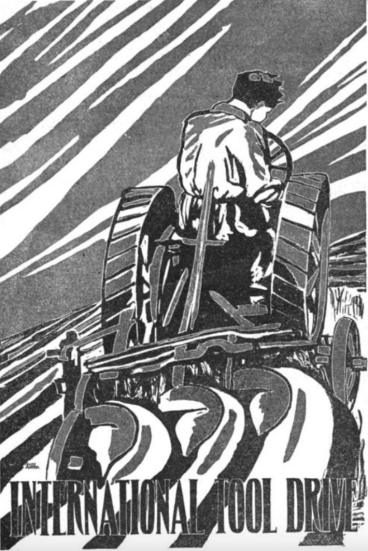
Title: Seeds of Exchange: Soviets, Americans, and the Future of Agriculture, 1919-1935
Abstract: This talk focuses on the history of the U.S.-Soviet exchange of agricultural knowledge and technologies during the 1920s and '30s. Too often, the interrelationships between these countries during this period are characterized through the "sender-recipient" framework where the Soviets are framed as recipients of American technological largesse. In this talk, I will challenge this perception. Framing this exchange within the global discourse of interwar food insecurity, I will show that the Soviet Union became an active participant in debates over the future of agriculture. Whereas other scholars have focused on official transactions between Soviet and American government agencies during the period, I will highlight an exchange conducted by individual experts who navigated state-level bureaucracy to engage in a global discourse of agricultural modernization. More than merely documenting Soviet interest in American technology, I will demonstrate that contemporary American agricultural experts perceived the Soviet Union as an ideal setting for experimenting with and refining modern farm systems and organizational practices. That specialists from both America and the Soviet Union viewed each other’s homelands as hotbeds of innovation underscores that agricultural modernization was not the exclusive domain of Western capitalists.
Joseph Martin, March 15, 3:35pm
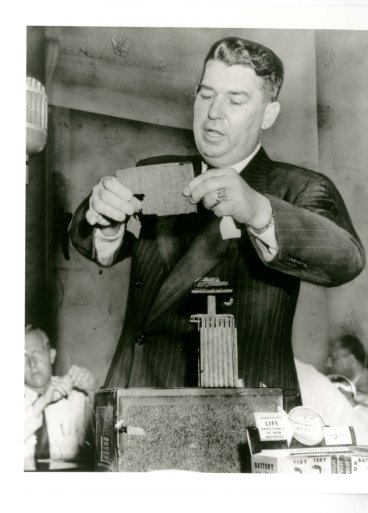
Title: Science with a Swagger: The AD-X2 Controversy and the Scientific Self-Image
Abstract: In March of 1953, Allan Astin, Director of the US National Bureau of Standards (NBS), lost his job. Sinclair Weeks, the newly confirmed Secretary of Commerce in the Eisenhower administration, demanded Astin’s resignation after the NBS published a report concluding that a product marketed as AD-X2, which was advertised as extending the life of automotive batteries, was ineffective. Weeks, an admirer of the product’s developer and chief promoter, Jess Ritchie, regard the NBS’s verdict on AD-X2 as an attack on small business and sought to install a friendlier regime at the bureau.
American scientists were outraged. Astin, a career NBS scientist who had been with the organisation for over two decade and was well known mostly in a few specialist circles before his ouster became an instant cause célèbre of the scientific community. His removal sparked a frenetic mobilization, which quickly organized censures by the National Academy of Sciences, the American Physical Society, and other organizations and succeeded in forcing Weeks to back down. Astin was reinstated and remained at the head of the NBS until his retirement in 1969.
By exploring the origins and nature of the controversy alongside the way American scientists organized to exert political pressure, this talk explores the complex relationship between industry, government, and science as it assumed a new shape in the postwar United States. It reveals the rapid postwar emergence of a widely shared self-image among American scientists, based on a pure-science ideal, which they thought sanctioned their institutional clout and justified their influence in public affairs.
Karen Kovaka, March 22, 3:35pm

Philosophy, University of California, San Diego
Title: Social Scientific Tools for Identifying Democratic Values
Abstract: Philosophers are paying more and more attention to the role that democratic values (the values of the public) can and should play in science. In particular, there is debate about the extent to which democratic values should inform scientific value judgments. This debate raises the question: What are the capabilities and limits of social scientific techniques for identifying democratic values in the first place? In this talk, I evaluate a variety of social scientific techniques, discuss their strengths and weaknesses with respect to the project of identifying democratic values, and consider how these considerations affect normative philosophical claims about the role of democratic values in science.
Kelly O'Donnell, March 29, 3:35pm
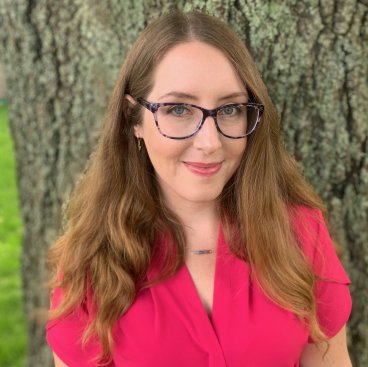
Kelly O'Donnell, Bryn Mawr
Title: Prescribing Reproductive Rights: Pills and the Politics of Patient Autonomy, 1969-2024
Abstract: The birth control pill, the morning after pill, mifepristone - prescription drugs have been at the center of debates over reproductive rights since the 1960s. Starting with historical debates over side effects from oral contraceptives and ending with current questions of over-the-counter status of the pill and ongoing legal fights over abortion pill access, this talk reformulates histories of patient autonomy and medical paternalism. Reproductive rights have been both prescribed and proscribed, with fertility control drugs at the heart of the story.
Harry Wu, April 5, 3:35pm
National Cheng Kung University, Taiwan
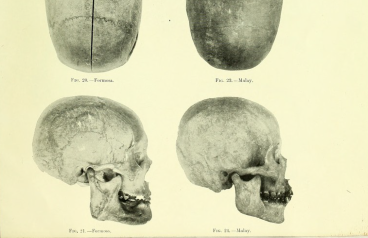
Title: How Physical Anthropologists Constructed Knowledge of Racial Qualities through
Inter-Imperial Networks: A Medical History in the Eyes of Scientists and Botan's Skulls
Abstract: Physical anthropology emerged during modern history to study the origin, evolution, and diversity of humans. The field has shed light on the relationship between humans and other primates, as well as the transition to human anatomy and related sciences. It is a discipline that was developed in modern medicine to study the structures and functions of the human body. However, imperialists also used measurements of human skulls and other body parts collected in different colonial laboratories to compare different races and claim the superiority of certain ethnicities, in addition to the expanding power of empires. In the late 19th century, during a battle in Formosa, four human skulls were taken from the indigenous Botans, a Paiwan community settling in the southern region of Taiwan and brought to Japan. The four skulls were later designated as 'specimens' and kept in the Anatomical Museum at the University of Edinburgh. In December 2023, a repatriation ceremony was held between the University of Edinburgh and the Botan community to return the skulls. Recently, it has been revealed that many research institutions and museums have unethically amassed human body parts, largely taken from minority populations, including indigenous peoples and people of color. During this talk, I will discuss the journey of the four Botan skulls over the past century and a half, as well as the inter-imperial networks that were formed to serve the interests of colonialism and scientists' desire to understand racial differences. Finally, I will link the current controversy of 'strategic biological essentialism' to the historical practice of physical anthropology. Then, I will elaborate on the emerging agenda of decolonization in the history of medicine in recent morphometric and genetic politics.
Michela Massimi, April 12, 3:45pm

University of Edinburgh
Giere lecture
**Note: This lecture will take place in University Hall at McNamara Center**
Title: Epistemic communities and situated knowledge. An Introduction to perspectival realism
Abstract: In this Giere Memorial Lecture I go back to Ron Giere's seminal work on Scientific Perspectivism to ask what a scientific perspective is, how it differs from Kuhn's notion of scientific paradigm, and how it captures the situated knowledge of particular epistemic communities. I then clarify the ontology of nature that I see as naturally accompanying the notion of scientific perspective and its implications for how to think of scientific knowledge as a multicultural inquiry.
Joanna Radin, April 19, 3:35pm
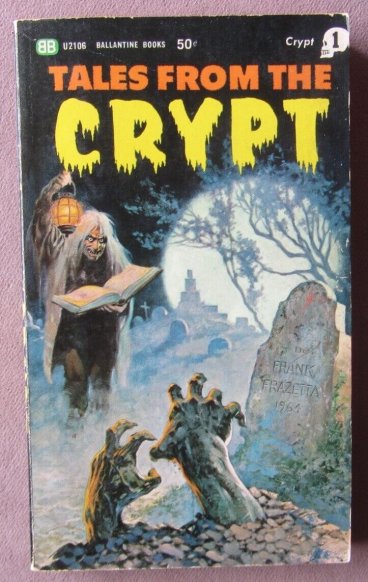
History, Yale University
Title: Tales From the Crypt: Craniometry, Computers and Mass Culture in 1960s Cambridge
Abstract: This is a story about what happened when an enterprising Ivy league, pre-med majoring in anthropology encountered a machine he was told could, among other miracles, transform the spoils of generations of racial conquest into anti-racist science. It is a cautionary tale, not unlike the ones this pre-med would become best known for when he abandoned medicine for mass-market publishing and Hollywood. I narrate this account not as a thriller, adventure, or mystery, but as a bad romance. Or more specifically a necromance, born out of opportunistic relationships to the dead and mass cultural movements to refuse civil rights. The story unfolds between Cambridge, UK and Cambridge, MA in the 1960s. Specifically, collection of skulls at Cambridge University and the gender and racially segregated halls of Harvard College. It traces the intersections of Black Power and the power of computers—specifically the IBM 7090–as a strategy for intervening in entrenched ideas about human racial and sexual difference. I follow the consequences of this skullduggery into the present, after calls for the release of human remains from Anthropology’s crypts amidst the Black Lives Matter movement during the twilight of Affirmative Action.
Tamara Fernando, April 26, 3:35pm
History, Stony Brook University
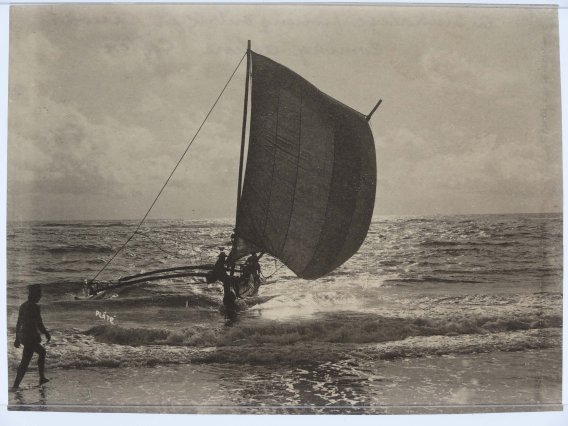
Title: Nacreous Histories of Science: Pearling Knowledge in the Indian Ocean World
Abstract: Pearling – the search for organically-occurring gemstones in mollusks — was an important economic venture in the coastal, seafaring worlds of the Northern rim of the Indian Ocean. In addition to being economically important, it also drew on and invoked a range of specialized knowledge. Built on the embodied, immersive, sensuous work of the pearl diver underwater, conducting a successful pearling operation relied also on vernacular seafaring navigational practices, rooted in Arabic and Tamil practice and text, as well as other sciences of computation around pearl valuation and dealing. During the high imperial moment, as the British Empire extended its grasp into these sites, these longstanding (albeit dynamic) modes of science and knowledge increasingly intersected with colonial marine biology and oceanography, which, once again, aimed to optimize the pearling yield. In this talk I will ask how to place these knowledge traditions alongside one another, asking if the pearl itself, in its layered, nacreous form, gives us clues as to how to approach the plural, heterogeneous world of maritime/marine knowledge and science at the turn of the twentieth century.